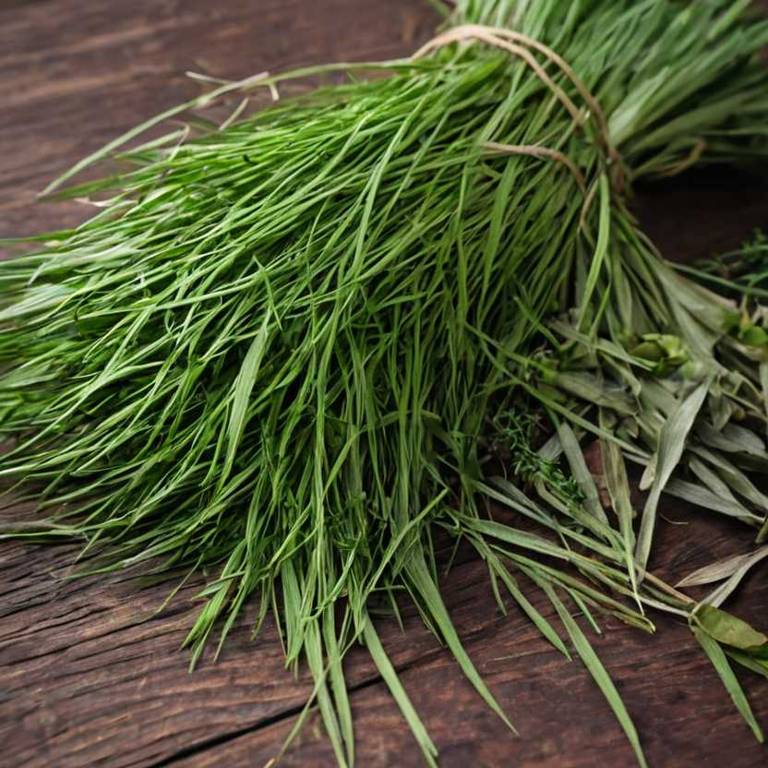Lemon Grass (Cymbopogon citratus)
Lemon Grass (Cymbopogon citratus) is a member of the Poaceae family, native to Southeast Asia, Pacific Islands, and Northern Australia. Traditionally, its leaves, stems, and oleoresin have been used for infusions, decoctions, and oil infusions.
This herb is particularly valued for its anti-inflammatory, antispasmodic, and carminative actions, and has a long history of use in ayurvedic medicine, european herbal medicine, and african traditional medicine.

Quick Facts / Key Information
| Common Name | Lemon Grass |
|---|---|
| Scientific Name | Cymbopogon citratus |
| Plant Family | Poaceae |
| Genus | Cymbopogon |
| Species | citratus |
| Native Range | Southeast Asia, Pacific Islands, Northern Australia |
| Plant Parts Used | Leaves, Stems, Oleoresin |
| Primary Medicinal Actions | Anti-Inflammatory, Antispasmodic, Carminative |
| Primary Traditional Systems | Ayurvedic Medicine, European Herbal Medicine, African Traditional Medicine |
| Historical Preparation Methods | Infusion, Decoction, Oil Infusion |
Botanical Identity
- Scientific Name
- Cymbopogon citratus
- Common Name
- Lemon Grass
- Synonyms / Alternative Names
- Citron Grass, Lemon Grass, Citron Grass
- Plant Family
- Poaceae
- Genus
- Cymbopogon
Botanical Description
- Growth Habit
- Perennial herbaceous plant.
- Height
- It typically grows to a height of 1 to 2 meters.
- Leaves
- Linear leaves with a pale green upper surface and a slightly lighter green lower surface, characterized by prominent stomatal bands along the midrib.
- Flowers
- Inflorescence composed of dense spikelets arranged in a panicle, each spikelet bearing two bracts and three to five florets with pale yellow to white lemma and palea, actinomorphic flowers with three stamens and a two-lobed stigma.
- Stems
- Culinary herb with erect growth habit, cylindrical and solid stem structure, smooth and glabrous surface, and nodes bearing leaf sheaths.
Traditional Uses / Historical Use
Traditional Systems
- Ayurvedic Medicine
- European Herbal Medicine
- African Traditional Medicine
- Traditional Chinese Medicine
Historical Preparation Methods
- Infusion
- Decoction
- Oil Infusion
- Tincture
Medicinal Actions
- Anti-inflammatory
- Commonly referenced as a gentle anti-inflammatory, for irritation-related applications.
- Antispasmodic
- Historically regarded as a mild antispasmodic, in muscle-related contexts.
- Carminative
- In herbal literature, noted as a warming carminative, in stomach-related herbal uses.
- Diuretic
- In herbal texts, considered a moderate diuretic, in cleansing-oriented uses.
Active Compounds
- Essential Oil
- A complex mixture of volatile compounds produced by aromatic plant tissues.
- Flavonoid
- Plant-based polyphenolic compounds frequently distributed throughout aerial plant parts.
- Phenolic Acid
- Naturally occurring phenolic compounds present in many plant species.
- Terpenoid
- Naturally occurring metabolites widely distributed in leaves, flowers, and roots.
Modern Research Overview
Scientific literature concerning this plant spans multiple areas, including phytochemistry and laboratory research. Detailed analysis of published studies is not included at this time and will be added as part of future editorial expansion.
Safety & Contraindications
- General Precautions
- The use of this herb may warrant general caution in certain situations.
- Contraindications
- Contraindications related to this herb have been noted in traditional use and available sources.
- Allergies
- There is insufficient evidence to determine whether this herb commonly causes allergic reactions.
- Drug Interactions
- Interactions between this herb and prescription medications have been noted in traditional use and literature.
- Toxicity
- Reports of toxicity related to this herb are not well documented in available literature.
- Pregnancy & Breastfeeding
- Available information regarding use during pregnancy or breastfeeding is limited.
Preparation & Usage Methods
- Infusion
- Dried or fresh plant parts are infused in hot water and consumed as a beverage.
- Decoction
- Decoctions are made by heating plant material in water for an extended time.
- Poultice
- This method uses direct contact between plant material and the skin.
- Capsule
- A preparation format using encapsulated plant powders.
- Tincture
- Plant material is macerated in alcohol to create a concentrated liquid extract.
Growing, Harvesting & Storage
Growing / Cultivation
- Soil
- Prefers loamy soil with well-drained conditions. Typically grows best in organically rich soils.
- Sunlight
- Thrives in full sun. Tolerates full sun to partial shade.
- Watering
- Prefers well-balanced moisture levels. Tolerates moderate moisture fluctuations.
Medical Disclaimer
The information provided on this page is for educational and informational purposes only. It is not intended to diagnose, treat, cure, or prevent any medical condition. Always consult a qualified healthcare professional before using any herb for medicinal purposes.